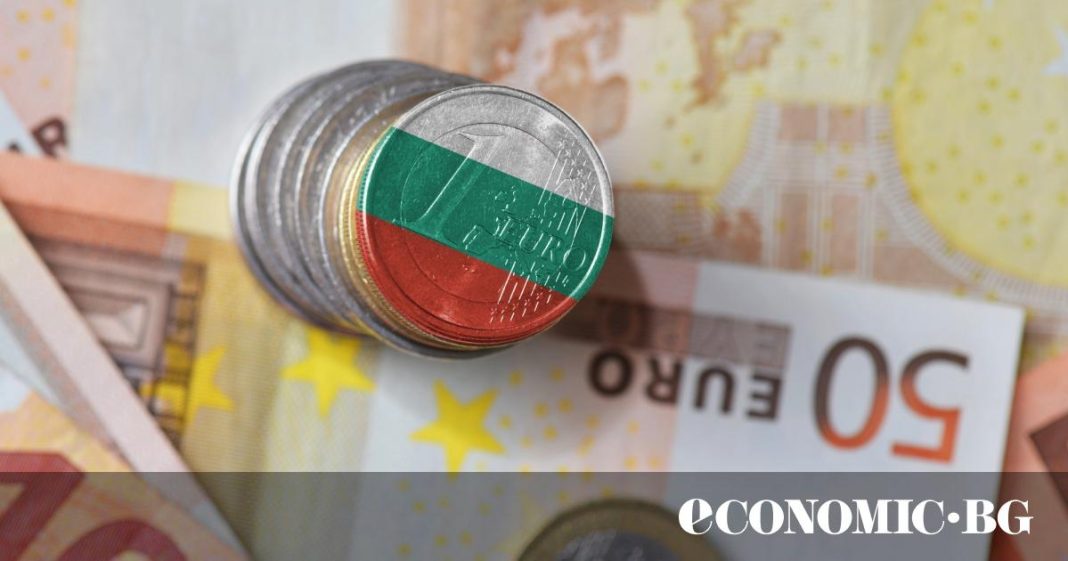In recent weeks, there has been renewed talk about the fate of people’s bank savings after Bulgaria enters the eurozone. Playing on fears that Bulgarians will „suddenly become poorer“ has become a preferred tool for manipulating public opinion by certain politicians, such as the nationalist populists from the Revival political party. These fears are being instilled, although economists and financiers familiar with the process have assured the public that this will not happen, and there is no such precedence in Europe.
Recently, the possibility of changing the fixed euro-lev exchange rate, which is currently 1.95583, has been added to the arguments of the eurozone opponents, with the insinuation that after the adoption of the euro, wages will fall by half and prices will double.
This is utter nonsense. There is no such scenario,“ said Levon Hampartzumyan, a financier and former chairman of the Association of Banks in Bulgaria (ABB), in an interview with BNT, regarding the allegations of a change in the exchange rate that’s stayed fixed since 1999.
Does anything guarantee the preservation of the exchange rate?
The Introduction of the Euro in Bulgaria Act, adopted last summer, clearly outlines the steps that the country must take on its path to joining the single European currency.
The rules for the exchange rate at which the exchange should be carried out are also written there.
Section I, Art. 5. explicitly states that
The official exchange rate of the lev to the euro is the irrevocably fixed exchange rate of the lev to the euro, determined in a Council Regulation adopted in accordance with Article 140(3) of the Treaty on the Functioning of the European Union.
This refers to Regulation (EC) No. 2866/98 of the Council of the EU, which fixes the exchange rates of all countries that have adopted the euro. It states, for example, that 1 euro is 40.3399 Belgian francs. Or that 1 euro is 1.95583 German marks.
Article 140 of the Treaty on the Functioning of the EU outlines the steps a country must complete to join the euro area: from the moment of requesting a report (be it regular or extraordinary), through fulfilling the Maastricht criteria to consultations with the European Parliament and the Council and the irrevocable fixing of the exchange rate. Specifically, paragraph 3 states:
If it is decided, in accordance with the procedure set out in paragraph 2, to abrogate a derogation, the Council shall, acting with the unanimity of the Member States whose currency is the euro and the Member State concerned, on a proposal from the Commission and after consulting the European Central Bank, irrevocably fix the rate at which the euro shall be substituted for the currency of the Member State concerned, and take the other measures necessary for the introduction of the euro as the single currency in the Member State concerned.’
In short: after approval by the European Commission and the ECB, the current eurozone member states will have the final say on the exchange rate at which Bulgaria will enter the eurozone.
However, by a decision of the National Assembly in 2020, the country will join the eurozone only if the exchange rate of 1.95583 leva per euro is maintained. If other conditions are put forward, the country’s Finance Minister cannot agree to them.
Have there been any countries in a position similar to Bulgaria’s?
There are several eurozone member countries that, like Bulgaria, also had a currency board in the past, and whose exchange rate was maintained after their transition to the single European currency.
For example, Estonia pegged its kroon to the German mark in 1992. With the introduction of the euro in Germany, the link became kroon-euro, and it remained unchanged upon Estonia’s accession on January 1, 2011.
The same thing happened to Latvia on January 1, 2014, when the euro replaced the Latvian lats at a fixed exchange rate of €1 = LVL 0.702804.
In 2015, Lithuania also maintained its exchange rate of €1 = LTL 3.45280.
The economic logic behind maintaining the exchange rate is to ensure stability and a smooth transition to the single currency. A change in the fixed level would mean „shaking“ Bulgaria’s financial discipline, accustomed as it is for decades to the series of numbers 1.95583; and that would also require political and economic reasoning that is currently lacking.
Translated by Tzvetozar Vincent Iolov
Източник: Economic.bg


